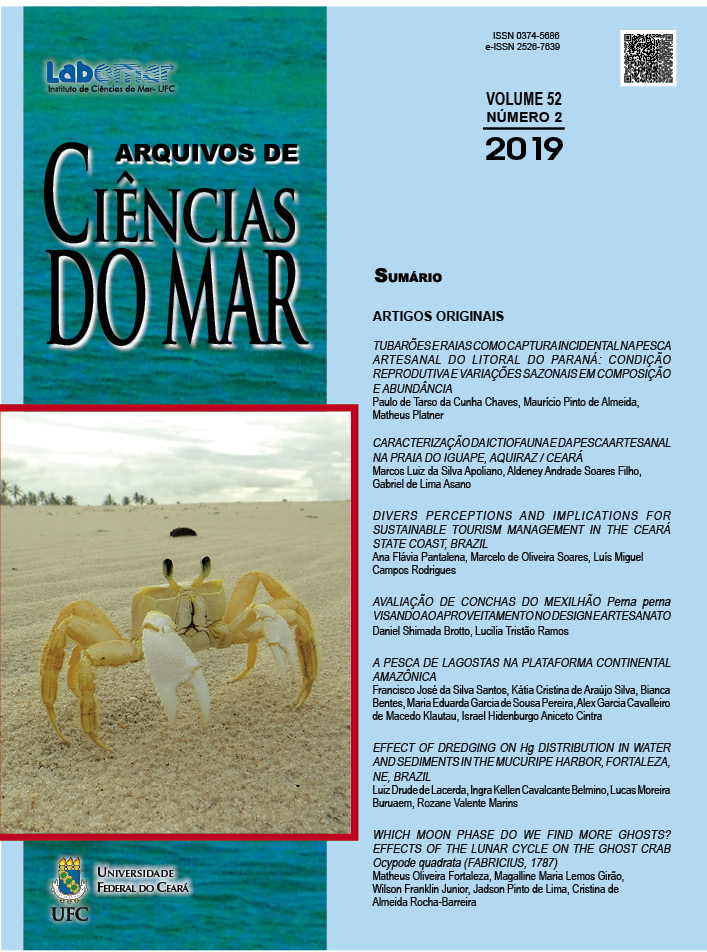Ghost fishing: a synthesis of causes and consequences in the last 15 years
a synthesis of causes and consequences in the last 15 years
DOI:
https://doi.org/10.32360/acmar.v52i2.41589Abstract
Brazilian marine ecosystems have been suffering from the pressure of fishing activity over the years. This intense exploitation of collapsed fishing resources brings with it direct and indirect impacts. One of the main indirect impacts is that generated by abandoned, lost or discarded fishing gear. In this context, the present work aims to carry out a bibliographical survey of the main causes and consequences described by the literature related to ghost fishing. For this, a systematic review of the literature of published manuscripts on “ghost fishing” has been carried out in the last 15 years around the world. The search was conducted through the Science Direct, Capes/ MEC Periodicals and the Google Scholar search tool. Gillnets were the main fishing gear lost or abandoned cited by the studies analyzed. The most common mitigating measures was the need to adapt the equipment used, such as the use of escape gaps, as well as the use of biodegradable materials to manufacture such gear. There is a need to carry out more studies related to this subject, given the importance and the degree of degradation that the ghost fishing causes.
Keywords: fishes, fishing gears, environmental impacts.
Downloads
Published
Issue
Section
License
1. Proposta de Política para Periódicos de Acesso Livre
Autores que publicam nesta revista concordam com os seguintes termos:
- Autores mantém os direitos autorais e concedem à revista o direito de primeira publicação, com o trabalho simultaneamente licenciado sob a Licença Creative Commons Attribution que permite o compartilhamento do trabalho com reconhecimento da autoria e publicação inicial nesta revista.
- Autores têm autorização para assumir contratos adicionais separadamente, para distribuição não-exclusiva da versão do trabalho publicada nesta revista (ex.: publicar em repositório institucional ou como capítulo de livro), com reconhecimento de autoria e publicação inicial nesta revista.
- Autores têm permissão e são estimulados a publicar e distribuir seu trabalho online (ex.: em repositórios institucionais ou na sua página pessoal) a qualquer ponto antes ou durante o processo editorial, já que isso pode gerar alterações produtivas, bem como aumentar o impacto e a citação do trabalho publicado (Veja O Efeito do Acesso Livre).

